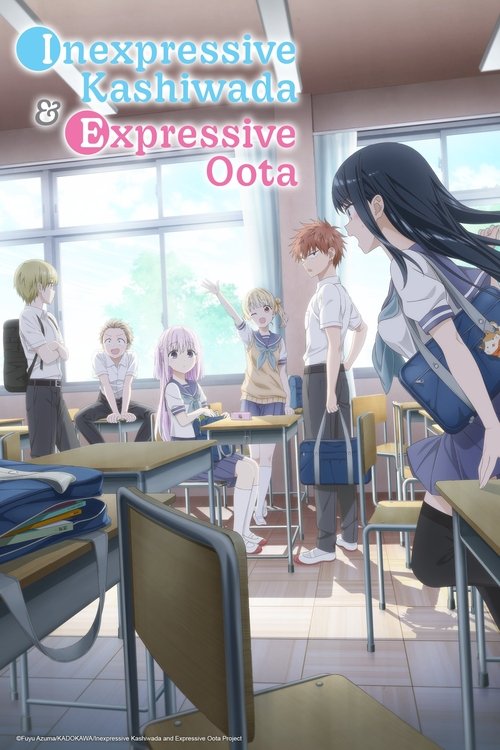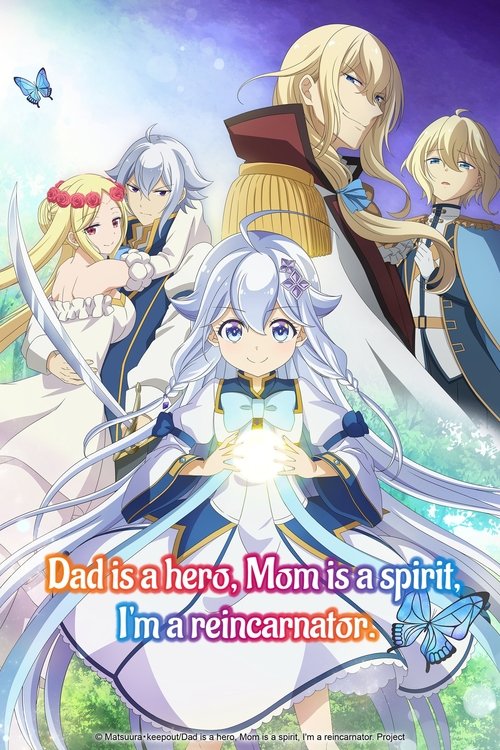
Ask Your Own Question
What is the plot?
The story begins in 1936 Japan, where Natsumi Sekiya, the third daughter of her family, is suddenly informed by her father that she will enter an arranged marriage with Takimasa Ebata, a lieutenant in the Imperial Navy. Natsumi has never met Takimasa before, and on their wedding day, Takimasa is absent due to his naval training schedule, so they do not see each other at the ceremony.
After the wedding, Natsumi and Takimasa meet for the first time. Takimasa is shy and stoic, making it difficult for them to connect immediately. Natsumi is pure-hearted and earnest, but their initial interactions are awkward and filled with miscommunication. Despite this, they begin living together and start to navigate the challenges of their arranged marriage.
As they spend more time together, Natsumi and Takimasa struggle with their feelings and the expectations of being newlyweds. They are both bashful and unsure how to express affection, leading to many internal monologues and second-guessing of each other's intentions. Their relationship is marked by moments of frustration but also growing understanding.
In episodes 7 and 8, a significant turning point occurs when Natsumi bravely admits that there is no one else she would want to touch or embrace but Takimasa. He reciprocates this feeling, and they consummate their marriage. Despite this, their relationship remains awkward and filled with intense internal thoughts, as they continue to learn how to be married to each other.
The morning after their first night together, Natsumi is mortified and overwhelmed by her thoughts about their intimacy, worrying that Takimasa might despise her. This causes her cooking to be thrown off, showing how deeply affected she is emotionally. Takimasa also experiences similar awkwardness, and both struggle to adjust to the new dynamic in their relationship.
Throughout the season, Natsumi and Takimasa communicate openly about their issues, never allowing misunderstandings to fester. Their honest conversations help them quickly resolve conflicts and deepen their bond. Although they never explicitly say "I love you," their affection and commitment are evident in their daily interactions.
Parallel to their story, the series also follows a secondary couple, Fumiko and Ryunosuke. Ryunosuke is Takimasa's colleague in the Navy, a flirtatious and cynical man from a wealthy family who is tired of superficial attention from women. Fumiko and Ryunosuke's relationship contrasts with Natsumi and Takimasa's innocence, showing a more mature and confident dynamic.
The season portrays the couple's simple, gentle life through the seasons in early Showa-era Japan, highlighting their sweet yet sometimes frustrating newlywed life. The narrative focuses on their everyday moments, the gradual growth of their relationship, and the challenges they face as they learn to live as husband and wife in a time of impending war.
The final episodes continue to show Natsumi and Takimasa's evolving relationship, emphasizing their mutual support and affection despite the difficulties of their arranged marriage and the pressures of the era. The season ends with the couple more connected and comfortable with each other, having overcome their initial awkwardness and misunderstandings.
Related Titles
Browse All Titles →
What is the ending?
The ending of A Calm Sea and Beautiful Days with You season 1 centers on Natsumi Ebata anxiously awaiting her husband Takimasa Takita's return from a naval mission during a violent storm. Despite her overwhelming worry, Takimasa finally comes home safely. The couple faces a moment of tension when Takimasa arrives late and drunk, but they reconcile and consummate their marriage, deepening their bond. The story closes on a bittersweet note, highlighting the couple's love amid the looming threat of war and the emotional struggles of naval families.
In the final episode, the narrative unfolds with Natsumi Ebata hearing a radio broadcast about a naval vessel caught in a severe storm off the South Pacific, unable to establish contact. This news fills her with anxiety, as her husband Takimasa Takita is aboard that ship. The scene captures Natsumi's growing distress, showing her unable to sit still, feeling the heavy burden of uncertainty that naval wives endure.
Meanwhile, Takimasa and his comrade Ryunosuke Fukami are struggling to manage the ship amid the violent storm. The ship shakes violently, and the men are busy with the dangerous task of keeping it afloat. This tense maritime scene contrasts sharply with Natsumi's anxious waiting on land.
Unable to bear the waiting, Natsumi decides to visit the naval base to seek information, hoping to find some news about the ship's condition. There, she is visited by Fumiko Yoshimori, who shares her own worries about Fukami, who is engaged. The two women confide in each other, expressing their shared feelings of anxiety and vulnerability. They break down in tears, revealing the emotional toll the naval life takes on families.
At this moment, Shibahara Ikuko arrives and gently comforts them. She explains the mindset required of a naval wife, offering reassurance with the words, "It'll be okay." This scene underscores the communal support among naval families and the strength they draw from each other.
Back at home, Takimasa finally returns, but he is late and drunk. Natsumi, who had been preparing a special dinner despite being sick, is hurt and upset by his inconsiderate behavior. She confronts him, expressing her disappointment and frustration. The couple's argument is a pivotal moment, revealing their vulnerabilities and the strain caused by Takimasa's naval duties.
Despite the conflict, Natsumi soon regrets pushing Takimasa away into the cold night. Her worry for him is palpable as she beats her fists on his chest, a physical expression of her emotional turmoil. In a tender and vulnerable moment, Natsumi admits that there is no one else she wants to touch or embrace but him. Takimasa reciprocates this sentiment, and they finally consummate their marriage, marking a significant step in their relationship.
The episode closes with a sense of bittersweet happiness. The couple's love and mutual understanding have deepened, but the shadow of the impending war remains. The story emphasizes the beauty and fragility of everyday happiness against the backdrop of historical turmoil.
As for the fates of the main characters at the story's end:
- Natsumi Ebata remains a devoted and anxious naval wife, growing emotionally stronger through her experiences.
- Takimasa Takita returns safely from the storm but struggles with the pressures of his naval duties and their impact on his marriage.
- Fumiko Yoshimori shares a parallel emotional journey, worried about her fiancé Fukami.
- Ryunosuke Fukami is still engaged and involved in naval service, his fate intertwined with the looming war.
The final scenes highlight the theme that even in times of uncertainty and fear, moments of love, understanding, and calm can be found and cherished.
Is there a post-credit scene?
The TV show "A Calm Sea and Beautiful Days with You," Season 1 (2025), does not have a post-credit scene. The available detailed episode summaries and viewer reactions focus on the emotional and narrative content of the final episodes but do not mention any post-credit or after-credits scenes. Additionally, no sources indicate the presence of such a scene for this series, and databases that track post-credit scenes do not list one for this show.
What challenges do Natsumi and Takimasa face in their arranged marriage during Season 1?
Natsumi and Takimasa face several challenges including not meeting before their wedding, Takimasa's long absences due to his naval duties, and their initial difficulty connecting because of his shy, stoic personality. They struggle with loneliness, awkwardness, and learning to communicate openly, but gradually build their relationship through kindness, respect, and understanding despite the distance and uncertainty caused by his job at sea.
How does the wartime setting affect the characters and plot in Season 1?
The story is set in the 1930s with the looming threat of war, which creates a constant tension beneath the peaceful daily life of Natsumi and Takimasa. Takimasa's naval duties pull him away for long periods, and the characters face the impending tragedy of war, including homelessness and famine. This backdrop adds depth to the narrative, emphasizing the importance of cherishing small moments of happiness and calm amid chaos.
What is the significance of Natsumi and Takimasa consummating their marriage in episodes 7-8?
Their consummation marks a brave and momentous step in their relationship, highlighting their vulnerability and awkwardness as a bashful couple. Despite this, they continue to second-guess each other and carry intense internal monologues, showing their struggle to adjust to married life. Natsumi's mortification and disrupted cooking the next morning illustrate her desire to be a proper wife and the humorous, tender nature of their evolving intimacy.
How do Natsumi and Takimasa’s personalities influence their relationship development?
Takimasa's shy and stoic nature initially makes it hard for Natsumi to connect with him, while Natsumi's earnestness and desire to support him help bridge the gap. Their relationship grows through open communication, kindness, and mutual respect. They learn to appreciate each other's efforts and timing, gradually opening up emotionally and becoming each other's home despite the challenges posed by his naval career.
What role do family and friends play in Season 1 of the series?
Family and friends provide a loving and supportive environment around Natsumi, helping her navigate the difficulties of her arranged marriage and the looming war. Their presence contrasts with the isolation caused by Takimasa's absences and adds emotional depth to the story, highlighting themes of platonic and familial love alongside the central romance.
Is this family friendly?
The TV show A Calm Sea and Beautiful Days with You (Season 1, 2025) is generally family friendly with a lighthearted, wholesome tone centered on a newlywed couple's relationship in pre-WWII Japan. It is a romantic comedy with a peaceful, traditional setting and focuses on emotional health, mutual respect, and gentle humor.
However, there are a few potentially sensitive aspects to be aware of for children or sensitive viewers:
- The historical backdrop is the years leading up to Japan's entry into WWII, so there are references to war and its looming presence, though the show avoids graphic wartime atrocities and focuses on personal, domestic life.
- Some scenes involve emotional tension related to arranged marriage dynamics, but these are handled with care, and the main couple's relationship is portrayed as healthy and respectful. There are moments of anxiety about safety and wellbeing early on, but no actual domestic violence occurs.
- The show includes a confronting scene where the female lead witnesses the pain of childbirth, which is emotionally intense and may be upsetting for some viewers. It also touches on themes of loneliness and difficult decisions about family planning.
- Mild familial bickering and teasing occur, portrayed realistically but without harshness or cruelty.
Overall, the show's tone is gentle, warm, and often charmingly awkward, making it suitable for older children and families who can handle mild historical context and emotional moments without graphic content or strong conflict.




























